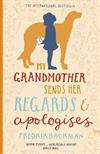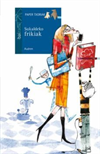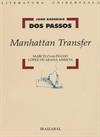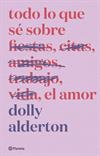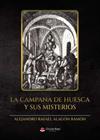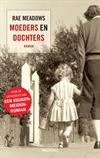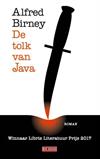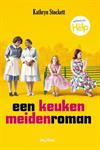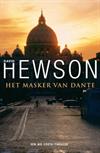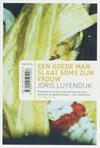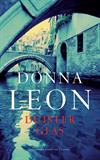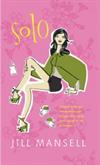
Poisonwood Bible : A Novel
2 journalers for this copy...
Journal Entry 1 by Annet74 from not specified, not specified not specified on Friday, November 14, 2003
I plan to release this one.
Thanks Annet74!
This was the first BookCrossings Book ever to come to me through the mail. So it will always be a very special book to me.
When I've finished it I'll let you know how I felt about it. I think I will enjoy it, since I also liked the other Kingsolver books (The Bean Trees, Pigs in Heaven) that I've read so far.
For a long time I wanted to read The Poisonwood Bible. It was recommended to me by my aunt already a couple of years ago, but it was only a few weeks ago that I read The Singing of the Dead by Dana Stabenow, a book that mentions The Poisonwood Bible, that made me really decide to read it.
This was the first BookCrossings Book ever to come to me through the mail. So it will always be a very special book to me.
When I've finished it I'll let you know how I felt about it. I think I will enjoy it, since I also liked the other Kingsolver books (The Bean Trees, Pigs in Heaven) that I've read so far.
For a long time I wanted to read The Poisonwood Bible. It was recommended to me by my aunt already a couple of years ago, but it was only a few weeks ago that I read The Singing of the Dead by Dana Stabenow, a book that mentions The Poisonwood Bible, that made me really decide to read it.
And I finally, finally, came round to reading this one!
I see it took me 2,5 years since I received it from you, Annet74 *shame*.
I finished it a week ago or so and I still did not write a proper synopsis, but the books still comes to mind ever so often.
I thought it less good than other Kingsolver books I've read, but a gripping and interesting story. I've the feeling I learned quite a bit about an African region I did not know anything about.
Barbara Kingsolver did an incredible thing, writing a story like this, with all these characters, and all the linguistic, political and religious information.
It disturbed me, however, that Orleanna and her older daughters are depending so much on Nathan Price. All the time I thought: there must have been a way to leave earlier. I don't know, it just bothered me. I thought Nathan Price was an awful man, and I would have found a way to leave.
Thanks you so much, Annet74, for giving me the chance to read this one. I will hand it to a fellow bookcrosser (who is also a member of my RL bookclub), or otherwise send it on to somebody who has it on their wishlist.
Anyway, The Poisonwood Bible will continue its travels asap!
*edit* amazon review for some detail"s:
I first discovered Barbara Kingsolver several years ago and loved her novels, The Bean Trees, and Pigs in Heaven. Even though she, herself, is not Native American, her books stand as were beacons of enlightenment about their often misunderstood world today and have been praised throughout the world. The Poisonwood Bible is a more ambitious book, and the landscape is the Belgian Congo, but her voice lays bare the same kind of clashes and misunderstandings that exist between cultures.
Well researched and deeply moving, it tells the story of a missionary's family from Georgia who move to the Congo in the late 1950s. The father is a religious fanatic, driven to convert the world to his brand of Christianity .His wife and four daughters have no choice but to respect his wishes. Using the technique of alternating first-person voices, each chapter is told from the point of view of these five female family members.
A poisonwood tree grows by their house. It is beautiful but it causes rashes and boils on the skin. It's a great metaphor.
There is the mother, Orleanna Price, who struggles daily with the effort of keeping her family together in a world that is suddenly devoid of electricity, plumbing and food. Precious wood must be found for the stove, water must be boiled to remove parasites, and vegetables do not grow. The oldest daughter, Rachel is 16. She misses her friends and her life in Georgia and yearns for nailpolish and hairdos. Then there are twins of 14: Leah and Adah. Both are smart and open to learn about the world around them but Adah cannot speak or move one side of her body. The littlest one, Ruth May, at age 5 teaches the native children to play games.
Each one of these voices is totally distinct from each other and tells her tale in her own distinctive way. Their overlapping views of the same incident turned them into multifaceted prisms instead of simple story lines. I wanted nothing more to go on reading, finding myself in their world, feeling the heat and the beauty of Africa as each one, in her own way, discovered her own Africa.
But Africa was changing even as they were . Revolution was happening. It was dangerous for the missionaries. The father refused to leave. And the family gets caught up in total upheaval. When one of the daughters dies and I felt the grief throughout my bones. It wasn't just happening to a person in a book. I had known her so well that I, too, mourned the loss and felt their struggle to leave the madness. Felt the raging fever of malaria, saw how each had changed.
The last third of the book follows the surviving women through the next 30 years of African and American history. It is a political statement and it opened a world for me I never even knew existed. Often in books that span 40 years, the first part of the book is the best. But this book even got better as it moved along. It's 543 pages long and I was sorry to see it end.
'That one, brother, he bite,' she [Mama Tataba] said, pointing her knuckly hand at a small tree he [father] was wresting from his garden plot. White sap oozed from the torn bark. My father wiped his hands on his trousers.
'Poisonwood,' she added flatly, emphasizing the descending syllables as if she were equally tired of all three. (p. 46 - Genesis, Leah)
***
My own name, as I am accustomed to think of it, is Ecirp Nelle Hada. Sometimes I write it this way without thinking, and people turn up startled. To them I am only Adah or, to my sisters sometimes, the drear monosyllabic Ade, lemonade, Band-Aid, frayed blockade, switchblade renegade, call a spade a spade.
I prefer Ada as it goes either way, like me. I am a perfect palindrome. (p.67 - Genesis, Adah)
***
Under the eave of the porch our charge Methuselah screamed like a drowning man in his cage. Methuselah is an African Grey parrot with a fine scaly look to his head, a sharp skeptical eye like Miss Leep's, and a scarlet tail. He resides in a remarkable bamboo cage as tall as Ruth May. His perch is a section of a sturdy old-fashioned yardstick, triangular in cross-section. Long ago someone broke off the inches nineteen through thirty-six and assigned these to Methuselah for the conduct of his affairs.
Parrotsare known to be long-lived, and among all the world's birds, African Greys are best at imitating human speech. Methuselah may or may not have heard about this, for he mumbles badly. He mumbles to himself all day long like Grandfather Wharton. Mostly he says incomprehensible things in Kikongo but also speaks like Mr Poe's Raven a desultory English. On the first day of rain, he raised his head and screeched through the roar of the storm his best two phrases in our language: first, in Mama Tataba's side-slant voice, 'Wake up, Brothah Fwels! Wake up, Brothah Fowel!'
Then in a low-pitched growl, 'Piss off, Methuselah!'
The Reverend Price looked up from his desk by the window and made note of the words 'Piss off.' The morally suspect ghost of Brother Fowels was thick upon us.
'That,' the Reverend declared, 'is a Catholic bird.'
Mother looked up from her sewing. My sisters and I shifted in our chairs, expecting Father to assign Methuselah 'The Verse.'
The dreaded Verse is our household punishment. Other lucky children might merely be trashed for their sins, but we Price girls are castigated with the Holy Bible. The Reverend will level his gaze and declare, 'You have The Verse.' Then slowly, as we squirm on his hook, he writes on a piece of paper, for example: Jeremiah 48:18. Then say ye good-bye to sunshine or the Hardy Boys for an afternoon as you, poor sinner, must labor with a pencil in your good left hand to copy out of of Jeremiah 48:18, 'Come down from your throne of glory and sit in the mire, O daughter that dwells in Dibon,' and additionally, the ninety-nine verses that follow it. One hundred full verses exactly copied out in longhand, because it is the final one that reveals your crime. In the case of Jeremiah 48:18, the end is Jeremiah 50:31, 'Lo! I am against you, O Insolence! saith the oracle of the Lord, the God of hosts; For your day has come, your time of reckoning,' Only upon reaching that one-hundredth verse do you finally understand you are being punished for the sin of insolence. Although you might well have predicted it. (p. 68-69 - Genesis, Adah)
***
One red feather for celebration. No one yet has seen it but me.
When Miss Dickinson says, 'Hope is the thing with feathers,' I always think of something round - a ball from one of the games I will never play - stuck all around like a clove-orange sachet with red feathers. I have pictured it many times - Hope! - wondering how I would catch such a thing one-handed, if it did come floating down to me from the sky. Now I find it has fallen already, and a piece of it is here beside our latrine, one red plume. In celebration I stooped down to pick it up.
Down in the damp grass I saw the red shaft of another one, and I reached for it. Following the trail I found first the red and then the gray: clusters of long wing feathers still attached to gristle and skin, splayed like fingers. Downy pale breast feathers in tufted mounds. Methuselah.
At last it is Independence Day, for Methuselah and the Congo. O Lord of the feathers, deliver me this day. After a lifetime caged away from flight and truth, comes freedom. (p. 211 - The Revelation, Adah)
***
In the depths of my sleepless nights I would turn to the Bible for comfort, only to find myself regaled yet again. Unto the woman God said: I will greatly multiply thy sorrow and conception, in sorrow thou shalt bring forth children; and thy desire shall be to thy husband, and he shall rule over thee.
Oh, mercy. If it catches you in the wrong frame of mind, the King James Bible can make you want to drink poison in no uncertain terms. (p. 218 - The Judges, Orleanna Price)
***
Caterpillars one after another I laid on my tongue, their char crisp bristle taste a sweet momentary salve to a body aching for protein. Hunger of the body is altogether different from the shallow, daily hunger of the belly. Those who have known this kind of hunger cannot entirely love, ever again, those who have not.
The fire moved faster than we did, we the young and elderly shepherdesses of dead insects. Sometimes I stood up straight to let the blood run from my head to the numb slabs of muscle at the backs of my thighs. Mother held on tight to the hand of Ruth May, her chosen child, but also stayed near me. Since the terrible night of the ants, Mother had been creeping her remorse in flat-footed circles around me without ever speaking of it, wearing her guilt like the swollen breasts of a nursing mother. So far I had refused to suckle and give her relief, but I kept close by. I had no choice, since she and Ruth May and I were thrown together by caste, set apart from Leah the Huntress. By choice, we also stayed far from Rachel and Father. Their noisy presences, of two different kinds, embarrassed us in this filed of earnest, quiet work. Sometimes I set a hand above my eyes and looked for Leah, but did not see her. Instead I watched Ruth May crunch thoughtfully on a caterpillar. Soiled and subdued, she looked like a small malnourished relative of my previous sister. The faraway look of her eyes must have been the muntu of Ruth May, chained to this breifly belligerent child through forelife, life, and afterlife, peering out through her sockets.
The fire ran ahead at times, and sometimes flagged, as if growing tired like the rest of us. The heat was unspeakable. I imagined the taste of water.
As the ring burned smaller we suddenly caught sight of its other side, the red-orange tongues and black ash closing in. The looming shapes of animals bunched up inside: antelopes, bushbucks, broadheaded warthogs with warthog children running behind them. A troop of baboons ran with arched tails flying as they zigzagged, not yet understanding their entrapment. Thousands of insects beat the air to a pulpy soup of animal panic. Birds hit the wall of fire and lit like bottle rockets. When it seemed there was no more air, no more hope, the animals began to run out through the fire into the open, where spears and arrows waited. The antelopes did not leap gracefully as I imagined they would; they wheeled like spooked horses around the inside of the circle, then suddenly veered out as if by accident or blindness. Seeing their companions shot in the neck with arrows, they heeled in panic, sometimes turning back tot the flames but mostly running straight on, straight toward people and death. A small spotted antelope fell down very near me and presented me with the strange singular gift of its death. I watched its heaving sides slowly come to rest, as if it had finally caught its breath. Dark blood leaked from its delicate black mouth onto the charred ground.
For every animal struck down, there rose an equal and opposite cry of human jubilation. Our hungry wishbone cracked and ran slick with marrow. Women knelt with their knives to skin the meat, even before the hooves stopped beating the ground in panic. Of the large animals who came through the fire - bushbuck, warthog, antelope - few escaped. Others would nog come out and so they burned: small flame-featherd birds, the churning insects, and a few female baboons who had managed against all odds to carry their pregnancies through the drought. With their bellies underslung with precious clinging babies, they loped behind the heavy-maned males, who would try to save themselves, but on reaching the curtain of flame where the others passed through, they drew up short. Crouched low. Understanding no choice but to burn with their children.
The curtain of heat divided the will to survive from survival itself. I could have fallen trembling on the ground but stood and watched instead, watched Kilanga's children shout and dance each time they found the scorched, angular bodies of a mother baboon and a baby seared together. On account of these deaths, Kilanga's gleeful children would live through another season. The bantu who watched from above would have seen a black festival of life and death indistinguishable one from the other against the blackscorched ground. (p. 392-395 - Bel and the serpent, Adah)
***
But the children soon came back, unable to resist the scene of such a spectacle. Just as they used to do when we first arrived here, they materialized one by one out of the moist air and the bamboo thickets until they'd formed a silent, watchful circle around the periphery of our yard. I suppose they were as astonished as we were taht a member of our family was capable of death. Gradually they crept forward, closing their circle around the table, and there they remained for a very long time, staring at Ruth May.
Mother had gone back in the house, where we could hear her strange, tireless industry moving upon the empty rooms. Our father seemed to be nowhere. My sisters and I stayed outside with the children because they seemed to embrace our presence. Out of habit we knelt on the ground and prayed the dumb prayers of our childhood: 'Our Father which art in heaven,' and 'Yea, though I walk through the valley of the shadow of death, I will fear no evil.' I could not remotely believe and Shepard was leading me through this dreadful valley, but the familiar words stuffed my mouth like cooton, and it was some relief to know, at least, that one sentence would follow upon another. It was my only way of knowing what to do.
Whenever I stopped praying, the buzz of the locusts grew hoorible in my ears. Si I didn't stop. Sometimes Rachel prayed with me, and sometimes the Congolese children also prayed in whatever words they knew. I recited the 23rd Psalm, the 121st Psalm, the 100th and 137th and 19th and 66th Psalms, the 21st chpater of Revelation, Genesis one, Luke 22, First Corinthians, and finally John 3: 16: 'For God so loved the world, that he gave his only begotten Son, that whosoever believeth in him should not perish but haveeverlasting life.'
The I stopped. It was very late in the afternoon, and I could think of no more prayers. I'd come to the end of all I knew. I listened to the world around me, but all other sound had ceased entirely. Not a single bird called. I felt terrified. The air seemd charged and dangerous but I couldn't pray anymore, and I couldn't get up and do anything else. To go back inside our empty house, where Moter was, especially, I souldn't make myself do. Not for anything It seemed impossible. So I stayed where I was, kneeling beside my sisters with our heads bowed low beneath the crackling air. (p. 424-425 - Bel and the serpent, Leah)
***
We walked for two days without food. At night we crouched at the edge of the woods and covered ourselves with palm leaves so the soldiers wouldn't spot us. Late on the second evening an army truck pulled up beside us, and a man threw us suddenly into the back, where we landed across laps helmets rifles. No doubt the soldiers planned to do us harm; I was numb with that expectation. But Mother's milk-glass eyes frightened them. Plainly she was possessed of some fierce evil that would enter these men if they touched her, or me. Especially me. So they kept their distance from both of us. We bumped along silently in the back of the truck, passing through dozens of military roadblocks, and we were turned over to the Belgian Embassy, which took us in until someone could sort out what ought to be done with us. We spent ninteen days in the infirmary, swallowing a variety of specialized poisons, since we had intestinal parasites, fungus growing on our feet and forearms, and more that the usual degree of malaria.
Then, on a hospital plane full of UN workers and sick white people, we were transported through a long thrumming darkness, in which we slept the sleep of the dead. When the dronng stopped we all sat up and blinked like disturbed corpses. There was light at the round windows. The belly of the plane groaned open and we were delivered abruptly into the benign spring air of Fort Benning, Georgia.
It is impossible to describe the shock of return. I recall that I stood for the longest time staring at a neatly painted yellow line on a neatly formed cement curb. Yellow yellow line line. I pondered the human industry, the paint, the cement truck and concrete forms, all the resources that had gone into that one curb. For what? I could not quite think of the answer. So that no car would park there? Are there so many cars that America must be divided into places with and places without them? Was it always so, or did they multiply vastly, along with telphones and new shoes and transistor radios and cellophane-wrapped tomatoes, in our absence? (p. 465-466 - Exodus, Adah)
***
Recently I rifled through the history of Our Father. An old trunk full of his things. I needed to find his military discharge papers, which would provide for me some benefits in the domain of college tuition. I found more than I was looking for. His medal is not, as we were always told, for heroic service. It is simply for having been wounded and having survived. For escaping fromn a jungle where all others marched to their deaths. No more than that. The conditions of his discharge were technically honorable, but unofficially they were: Cowardice, Guilt, and Disgrace. The Reverend the sole survivor in a company of dead men who have marched along beside him all his life since then. No wonder he could not fell from the same jungle twice. Mother told me a part of the story, and I realized I already knew the rest. Fate sentenced Our Father to pay for those lives with the remainder of his, and he has spent it posturing desperately beneath the eyes of a God who will not forgive a debt. (p. 468 - Exodus, Adah)
***
Ten years ago, when Anatole received that first letter stamped with the new, official seal of Presidency of Independent Angola, it looked like dreams could come true. After six hundred years of their own strife and a few centuries of Portuguese villainy, the warring tribes of Angola had finally agreed to a peace plan. Agostinho Neto was President, in an African nation truly free of foreign rule. We so nearly packed up and went, that very day. We were desperate to move our sons to a place where they could taste hope, at least, if not food.
But within two weeks of the peace agreement, the United States violated it. They airlifted a huge shipment of guns to an opposition leader, who vowed personally to murder Neto. On the day we heard this I sat sobbing in our kitchen, flattened with shame and rage. Patrice came and sat on the floor by my chair, patting my leg with a little boy's solemn endurance. 'Mama, Mama, ne pleure pas. Ce n'est pas de la faute de Grand-mère, Mama.' It didn't even occur to him to connect me with American disgrace; he thought I was angry at Mother and Adah. He looked up at me with his narrow little face and almond eyes and there was his father, years and years and years ago saying, 'Not you, Béene.'
But who, if not me, and for how many generations must we be forgiven by our children? Murdering Lumumba, keeping Mobutu in power, starting it all over again in Angola - these sound like plots between men but they are betrayals, by men, of children. It's thirty million dollars, Anatole told me recently, that the U.S. has now spent trying to bring down Angola's sovereignty. Every dollar of it had to come from some person, a man or woman. How does this happen? They think of it as commerce, I suppose. A matter of hardware, the plastic explosives and land mines one needs to do the job. Or it's a commerce of imagined dreads, the Bethlehem housewives somehow convinced that a distant, blach Communist devil will cost them some quarter in their color-matched living rooms. (p. 568-569 - Exodus, Leah)
***
This time, before your mind can calculate the answer it will wander away down the street with the child, dancing to the African music that has gone away and come home changed. The wooden animal in your pocket will soothe your fingers, which are simply looking for something to touch. Mother, you can still hold on but forgive, forgive and give for long as long as we both shall live I forgive you, Mother. I shall turn the hearts of the fathers to the children, and the hearts of the children to their fathers. The teeth at your bones are your own, the hunger is yours, forgiveness is yours. The sins of the fathers belong to you and to the forest and even to the ones in iron bracelets, and here you stand, remembering their songs. Listen. Slide the weight from your shoudlers and move forward. You will forgive and remember. Think of the vine that curls from the small square plot that was once my heart. That is the only marker you need. Move on. Walk forward into the light. (p. 614 - einde, The eyes in the trees, Adah)
***
In de bibliografie o.a. Jospeh Conrad: Heart of Darkness én Lieve Joris: Terug naar Congo.
I see it took me 2,5 years since I received it from you, Annet74 *shame*.
I finished it a week ago or so and I still did not write a proper synopsis, but the books still comes to mind ever so often.
I thought it less good than other Kingsolver books I've read, but a gripping and interesting story. I've the feeling I learned quite a bit about an African region I did not know anything about.
Barbara Kingsolver did an incredible thing, writing a story like this, with all these characters, and all the linguistic, political and religious information.
It disturbed me, however, that Orleanna and her older daughters are depending so much on Nathan Price. All the time I thought: there must have been a way to leave earlier. I don't know, it just bothered me. I thought Nathan Price was an awful man, and I would have found a way to leave.
Thanks you so much, Annet74, for giving me the chance to read this one. I will hand it to a fellow bookcrosser (who is also a member of my RL bookclub), or otherwise send it on to somebody who has it on their wishlist.
Anyway, The Poisonwood Bible will continue its travels asap!
*edit* amazon review for some detail"s:
I first discovered Barbara Kingsolver several years ago and loved her novels, The Bean Trees, and Pigs in Heaven. Even though she, herself, is not Native American, her books stand as were beacons of enlightenment about their often misunderstood world today and have been praised throughout the world. The Poisonwood Bible is a more ambitious book, and the landscape is the Belgian Congo, but her voice lays bare the same kind of clashes and misunderstandings that exist between cultures.
Well researched and deeply moving, it tells the story of a missionary's family from Georgia who move to the Congo in the late 1950s. The father is a religious fanatic, driven to convert the world to his brand of Christianity .His wife and four daughters have no choice but to respect his wishes. Using the technique of alternating first-person voices, each chapter is told from the point of view of these five female family members.
A poisonwood tree grows by their house. It is beautiful but it causes rashes and boils on the skin. It's a great metaphor.
There is the mother, Orleanna Price, who struggles daily with the effort of keeping her family together in a world that is suddenly devoid of electricity, plumbing and food. Precious wood must be found for the stove, water must be boiled to remove parasites, and vegetables do not grow. The oldest daughter, Rachel is 16. She misses her friends and her life in Georgia and yearns for nailpolish and hairdos. Then there are twins of 14: Leah and Adah. Both are smart and open to learn about the world around them but Adah cannot speak or move one side of her body. The littlest one, Ruth May, at age 5 teaches the native children to play games.
Each one of these voices is totally distinct from each other and tells her tale in her own distinctive way. Their overlapping views of the same incident turned them into multifaceted prisms instead of simple story lines. I wanted nothing more to go on reading, finding myself in their world, feeling the heat and the beauty of Africa as each one, in her own way, discovered her own Africa.
But Africa was changing even as they were . Revolution was happening. It was dangerous for the missionaries. The father refused to leave. And the family gets caught up in total upheaval. When one of the daughters dies and I felt the grief throughout my bones. It wasn't just happening to a person in a book. I had known her so well that I, too, mourned the loss and felt their struggle to leave the madness. Felt the raging fever of malaria, saw how each had changed.
The last third of the book follows the surviving women through the next 30 years of African and American history. It is a political statement and it opened a world for me I never even knew existed. Often in books that span 40 years, the first part of the book is the best. But this book even got better as it moved along. It's 543 pages long and I was sorry to see it end.
'That one, brother, he bite,' she [Mama Tataba] said, pointing her knuckly hand at a small tree he [father] was wresting from his garden plot. White sap oozed from the torn bark. My father wiped his hands on his trousers.
'Poisonwood,' she added flatly, emphasizing the descending syllables as if she were equally tired of all three. (p. 46 - Genesis, Leah)
***
My own name, as I am accustomed to think of it, is Ecirp Nelle Hada. Sometimes I write it this way without thinking, and people turn up startled. To them I am only Adah or, to my sisters sometimes, the drear monosyllabic Ade, lemonade, Band-Aid, frayed blockade, switchblade renegade, call a spade a spade.
I prefer Ada as it goes either way, like me. I am a perfect palindrome. (p.67 - Genesis, Adah)
***
Under the eave of the porch our charge Methuselah screamed like a drowning man in his cage. Methuselah is an African Grey parrot with a fine scaly look to his head, a sharp skeptical eye like Miss Leep's, and a scarlet tail. He resides in a remarkable bamboo cage as tall as Ruth May. His perch is a section of a sturdy old-fashioned yardstick, triangular in cross-section. Long ago someone broke off the inches nineteen through thirty-six and assigned these to Methuselah for the conduct of his affairs.
Parrotsare known to be long-lived, and among all the world's birds, African Greys are best at imitating human speech. Methuselah may or may not have heard about this, for he mumbles badly. He mumbles to himself all day long like Grandfather Wharton. Mostly he says incomprehensible things in Kikongo but also speaks like Mr Poe's Raven a desultory English. On the first day of rain, he raised his head and screeched through the roar of the storm his best two phrases in our language: first, in Mama Tataba's side-slant voice, 'Wake up, Brothah Fwels! Wake up, Brothah Fowel!'
Then in a low-pitched growl, 'Piss off, Methuselah!'
The Reverend Price looked up from his desk by the window and made note of the words 'Piss off.' The morally suspect ghost of Brother Fowels was thick upon us.
'That,' the Reverend declared, 'is a Catholic bird.'
Mother looked up from her sewing. My sisters and I shifted in our chairs, expecting Father to assign Methuselah 'The Verse.'
The dreaded Verse is our household punishment. Other lucky children might merely be trashed for their sins, but we Price girls are castigated with the Holy Bible. The Reverend will level his gaze and declare, 'You have The Verse.' Then slowly, as we squirm on his hook, he writes on a piece of paper, for example: Jeremiah 48:18. Then say ye good-bye to sunshine or the Hardy Boys for an afternoon as you, poor sinner, must labor with a pencil in your good left hand to copy out of of Jeremiah 48:18, 'Come down from your throne of glory and sit in the mire, O daughter that dwells in Dibon,' and additionally, the ninety-nine verses that follow it. One hundred full verses exactly copied out in longhand, because it is the final one that reveals your crime. In the case of Jeremiah 48:18, the end is Jeremiah 50:31, 'Lo! I am against you, O Insolence! saith the oracle of the Lord, the God of hosts; For your day has come, your time of reckoning,' Only upon reaching that one-hundredth verse do you finally understand you are being punished for the sin of insolence. Although you might well have predicted it. (p. 68-69 - Genesis, Adah)
***
One red feather for celebration. No one yet has seen it but me.
When Miss Dickinson says, 'Hope is the thing with feathers,' I always think of something round - a ball from one of the games I will never play - stuck all around like a clove-orange sachet with red feathers. I have pictured it many times - Hope! - wondering how I would catch such a thing one-handed, if it did come floating down to me from the sky. Now I find it has fallen already, and a piece of it is here beside our latrine, one red plume. In celebration I stooped down to pick it up.
Down in the damp grass I saw the red shaft of another one, and I reached for it. Following the trail I found first the red and then the gray: clusters of long wing feathers still attached to gristle and skin, splayed like fingers. Downy pale breast feathers in tufted mounds. Methuselah.
At last it is Independence Day, for Methuselah and the Congo. O Lord of the feathers, deliver me this day. After a lifetime caged away from flight and truth, comes freedom. (p. 211 - The Revelation, Adah)
***
In the depths of my sleepless nights I would turn to the Bible for comfort, only to find myself regaled yet again. Unto the woman God said: I will greatly multiply thy sorrow and conception, in sorrow thou shalt bring forth children; and thy desire shall be to thy husband, and he shall rule over thee.
Oh, mercy. If it catches you in the wrong frame of mind, the King James Bible can make you want to drink poison in no uncertain terms. (p. 218 - The Judges, Orleanna Price)
***
Caterpillars one after another I laid on my tongue, their char crisp bristle taste a sweet momentary salve to a body aching for protein. Hunger of the body is altogether different from the shallow, daily hunger of the belly. Those who have known this kind of hunger cannot entirely love, ever again, those who have not.
The fire moved faster than we did, we the young and elderly shepherdesses of dead insects. Sometimes I stood up straight to let the blood run from my head to the numb slabs of muscle at the backs of my thighs. Mother held on tight to the hand of Ruth May, her chosen child, but also stayed near me. Since the terrible night of the ants, Mother had been creeping her remorse in flat-footed circles around me without ever speaking of it, wearing her guilt like the swollen breasts of a nursing mother. So far I had refused to suckle and give her relief, but I kept close by. I had no choice, since she and Ruth May and I were thrown together by caste, set apart from Leah the Huntress. By choice, we also stayed far from Rachel and Father. Their noisy presences, of two different kinds, embarrassed us in this filed of earnest, quiet work. Sometimes I set a hand above my eyes and looked for Leah, but did not see her. Instead I watched Ruth May crunch thoughtfully on a caterpillar. Soiled and subdued, she looked like a small malnourished relative of my previous sister. The faraway look of her eyes must have been the muntu of Ruth May, chained to this breifly belligerent child through forelife, life, and afterlife, peering out through her sockets.
The fire ran ahead at times, and sometimes flagged, as if growing tired like the rest of us. The heat was unspeakable. I imagined the taste of water.
As the ring burned smaller we suddenly caught sight of its other side, the red-orange tongues and black ash closing in. The looming shapes of animals bunched up inside: antelopes, bushbucks, broadheaded warthogs with warthog children running behind them. A troop of baboons ran with arched tails flying as they zigzagged, not yet understanding their entrapment. Thousands of insects beat the air to a pulpy soup of animal panic. Birds hit the wall of fire and lit like bottle rockets. When it seemed there was no more air, no more hope, the animals began to run out through the fire into the open, where spears and arrows waited. The antelopes did not leap gracefully as I imagined they would; they wheeled like spooked horses around the inside of the circle, then suddenly veered out as if by accident or blindness. Seeing their companions shot in the neck with arrows, they heeled in panic, sometimes turning back tot the flames but mostly running straight on, straight toward people and death. A small spotted antelope fell down very near me and presented me with the strange singular gift of its death. I watched its heaving sides slowly come to rest, as if it had finally caught its breath. Dark blood leaked from its delicate black mouth onto the charred ground.
For every animal struck down, there rose an equal and opposite cry of human jubilation. Our hungry wishbone cracked and ran slick with marrow. Women knelt with their knives to skin the meat, even before the hooves stopped beating the ground in panic. Of the large animals who came through the fire - bushbuck, warthog, antelope - few escaped. Others would nog come out and so they burned: small flame-featherd birds, the churning insects, and a few female baboons who had managed against all odds to carry their pregnancies through the drought. With their bellies underslung with precious clinging babies, they loped behind the heavy-maned males, who would try to save themselves, but on reaching the curtain of flame where the others passed through, they drew up short. Crouched low. Understanding no choice but to burn with their children.
The curtain of heat divided the will to survive from survival itself. I could have fallen trembling on the ground but stood and watched instead, watched Kilanga's children shout and dance each time they found the scorched, angular bodies of a mother baboon and a baby seared together. On account of these deaths, Kilanga's gleeful children would live through another season. The bantu who watched from above would have seen a black festival of life and death indistinguishable one from the other against the blackscorched ground. (p. 392-395 - Bel and the serpent, Adah)
***
But the children soon came back, unable to resist the scene of such a spectacle. Just as they used to do when we first arrived here, they materialized one by one out of the moist air and the bamboo thickets until they'd formed a silent, watchful circle around the periphery of our yard. I suppose they were as astonished as we were taht a member of our family was capable of death. Gradually they crept forward, closing their circle around the table, and there they remained for a very long time, staring at Ruth May.
Mother had gone back in the house, where we could hear her strange, tireless industry moving upon the empty rooms. Our father seemed to be nowhere. My sisters and I stayed outside with the children because they seemed to embrace our presence. Out of habit we knelt on the ground and prayed the dumb prayers of our childhood: 'Our Father which art in heaven,' and 'Yea, though I walk through the valley of the shadow of death, I will fear no evil.' I could not remotely believe and Shepard was leading me through this dreadful valley, but the familiar words stuffed my mouth like cooton, and it was some relief to know, at least, that one sentence would follow upon another. It was my only way of knowing what to do.
Whenever I stopped praying, the buzz of the locusts grew hoorible in my ears. Si I didn't stop. Sometimes Rachel prayed with me, and sometimes the Congolese children also prayed in whatever words they knew. I recited the 23rd Psalm, the 121st Psalm, the 100th and 137th and 19th and 66th Psalms, the 21st chpater of Revelation, Genesis one, Luke 22, First Corinthians, and finally John 3: 16: 'For God so loved the world, that he gave his only begotten Son, that whosoever believeth in him should not perish but haveeverlasting life.'
The I stopped. It was very late in the afternoon, and I could think of no more prayers. I'd come to the end of all I knew. I listened to the world around me, but all other sound had ceased entirely. Not a single bird called. I felt terrified. The air seemd charged and dangerous but I couldn't pray anymore, and I couldn't get up and do anything else. To go back inside our empty house, where Moter was, especially, I souldn't make myself do. Not for anything It seemed impossible. So I stayed where I was, kneeling beside my sisters with our heads bowed low beneath the crackling air. (p. 424-425 - Bel and the serpent, Leah)
***
We walked for two days without food. At night we crouched at the edge of the woods and covered ourselves with palm leaves so the soldiers wouldn't spot us. Late on the second evening an army truck pulled up beside us, and a man threw us suddenly into the back, where we landed across laps helmets rifles. No doubt the soldiers planned to do us harm; I was numb with that expectation. But Mother's milk-glass eyes frightened them. Plainly she was possessed of some fierce evil that would enter these men if they touched her, or me. Especially me. So they kept their distance from both of us. We bumped along silently in the back of the truck, passing through dozens of military roadblocks, and we were turned over to the Belgian Embassy, which took us in until someone could sort out what ought to be done with us. We spent ninteen days in the infirmary, swallowing a variety of specialized poisons, since we had intestinal parasites, fungus growing on our feet and forearms, and more that the usual degree of malaria.
Then, on a hospital plane full of UN workers and sick white people, we were transported through a long thrumming darkness, in which we slept the sleep of the dead. When the dronng stopped we all sat up and blinked like disturbed corpses. There was light at the round windows. The belly of the plane groaned open and we were delivered abruptly into the benign spring air of Fort Benning, Georgia.
It is impossible to describe the shock of return. I recall that I stood for the longest time staring at a neatly painted yellow line on a neatly formed cement curb. Yellow yellow line line. I pondered the human industry, the paint, the cement truck and concrete forms, all the resources that had gone into that one curb. For what? I could not quite think of the answer. So that no car would park there? Are there so many cars that America must be divided into places with and places without them? Was it always so, or did they multiply vastly, along with telphones and new shoes and transistor radios and cellophane-wrapped tomatoes, in our absence? (p. 465-466 - Exodus, Adah)
***
Recently I rifled through the history of Our Father. An old trunk full of his things. I needed to find his military discharge papers, which would provide for me some benefits in the domain of college tuition. I found more than I was looking for. His medal is not, as we were always told, for heroic service. It is simply for having been wounded and having survived. For escaping fromn a jungle where all others marched to their deaths. No more than that. The conditions of his discharge were technically honorable, but unofficially they were: Cowardice, Guilt, and Disgrace. The Reverend the sole survivor in a company of dead men who have marched along beside him all his life since then. No wonder he could not fell from the same jungle twice. Mother told me a part of the story, and I realized I already knew the rest. Fate sentenced Our Father to pay for those lives with the remainder of his, and he has spent it posturing desperately beneath the eyes of a God who will not forgive a debt. (p. 468 - Exodus, Adah)
***
Ten years ago, when Anatole received that first letter stamped with the new, official seal of Presidency of Independent Angola, it looked like dreams could come true. After six hundred years of their own strife and a few centuries of Portuguese villainy, the warring tribes of Angola had finally agreed to a peace plan. Agostinho Neto was President, in an African nation truly free of foreign rule. We so nearly packed up and went, that very day. We were desperate to move our sons to a place where they could taste hope, at least, if not food.
But within two weeks of the peace agreement, the United States violated it. They airlifted a huge shipment of guns to an opposition leader, who vowed personally to murder Neto. On the day we heard this I sat sobbing in our kitchen, flattened with shame and rage. Patrice came and sat on the floor by my chair, patting my leg with a little boy's solemn endurance. 'Mama, Mama, ne pleure pas. Ce n'est pas de la faute de Grand-mère, Mama.' It didn't even occur to him to connect me with American disgrace; he thought I was angry at Mother and Adah. He looked up at me with his narrow little face and almond eyes and there was his father, years and years and years ago saying, 'Not you, Béene.'
But who, if not me, and for how many generations must we be forgiven by our children? Murdering Lumumba, keeping Mobutu in power, starting it all over again in Angola - these sound like plots between men but they are betrayals, by men, of children. It's thirty million dollars, Anatole told me recently, that the U.S. has now spent trying to bring down Angola's sovereignty. Every dollar of it had to come from some person, a man or woman. How does this happen? They think of it as commerce, I suppose. A matter of hardware, the plastic explosives and land mines one needs to do the job. Or it's a commerce of imagined dreads, the Bethlehem housewives somehow convinced that a distant, blach Communist devil will cost them some quarter in their color-matched living rooms. (p. 568-569 - Exodus, Leah)
***
This time, before your mind can calculate the answer it will wander away down the street with the child, dancing to the African music that has gone away and come home changed. The wooden animal in your pocket will soothe your fingers, which are simply looking for something to touch. Mother, you can still hold on but forgive, forgive and give for long as long as we both shall live I forgive you, Mother. I shall turn the hearts of the fathers to the children, and the hearts of the children to their fathers. The teeth at your bones are your own, the hunger is yours, forgiveness is yours. The sins of the fathers belong to you and to the forest and even to the ones in iron bracelets, and here you stand, remembering their songs. Listen. Slide the weight from your shoudlers and move forward. You will forgive and remember. Think of the vine that curls from the small square plot that was once my heart. That is the only marker you need. Move on. Walk forward into the light. (p. 614 - einde, The eyes in the trees, Adah)
***
In de bibliografie o.a. Jospeh Conrad: Heart of Darkness én Lieve Joris: Terug naar Congo.
Journal Entry 4 by Wilmar at Minibieb OBCZ Hotel De Doelen in Leiden, Zuid-Holland Netherlands on Wednesday, January 2, 2008
Released 16 yrs ago (1/2/2008 UTC) at Minibieb OBCZ Hotel De Doelen in Leiden, Zuid-Holland Netherlands
WILD RELEASE NOTES:
RELEASE NOTES:
Happy 2008 and Happy BookCrossing!
Happy 2008 and Happy BookCrossing!
 This Book is Currently in the Wild!
This Book is Currently in the Wild!

